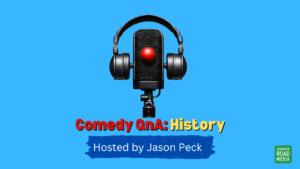I attended an Evaluation Workshop given by the current UK & Ireland Evaluation Champion Hilary Briggs (Early Bird Speakers) and the 2004 winner and DTM, Bob Ferguson (Excaliburs). By the way, if you check out that link Hilary is on the left of the picture.
In the UK the Toastmasters Evaluation Contest happens at the same time as the International Speech Contest. I don’t believe that this is the case in other countries.
What these two Toastmasters giants don’t know about giving effective evaluations isn’t worth knowing quite frankly.
I have to say that I learnt – A LOT. What’s interesting for me with my background as an actor (who has also had some experience teaching drama and directing theatre) is how I’m going to be able to fuse what I learned from Bob and Hilary into what I already know instinctively.
I generally look for how a speech is presented, what the speaker’s doing with their body language, how they’re using the stage, vocal variety and so on. After attending this workshop I am now aware of some of the areas that I need to work on.
So you can set myself a challenge. You can focus on one area that you need to sharpen your evaluation skills on and solely work on that when you next give an evaluation. This obviously helps beyond the Toastmasters Evaluation Contest.
And the great thing about evaluations is that you don’t even need to be a scheduled evaluator. You could evaluate a speaker and compare what you have written down for your commendations and recommendations with what the scheduled evaluator has.
They provided a really useful structure which I’m going to try to use from now on. That’s the thing, I always make lots of notes but find it difficult to navigate my way around them when it comes time for me to give my spoken evaluation.
Here’s the structure:
C – Commend
C – Commend
R – Recommend
R – Recommend
C – Commend
S – Summary
Use just one keyword on each part to remind you of what you’ve written.
When you come up with commendations leave your best one until the end. The next two are then ones that you open with. When you give your commendations you should also say why you liked what the speaker did. Don’t just say, “she used the space” tell us why using the space is good.
With the two recommendations provide a tip for how to improve and overcome that area that you picked up on. Don’t just say: “you clasped your hands too much” and end it with that. Provide useful tips to help the speaker improve. Depending on how much you have to say, you might only need to give one recommendation. Especially if you can explain in detail how the speaker can go about improving.
When you summarise give an overall impression of what you thought of the speech. Remember to keep that positive too. You don’t want to give a commendation and then say: “in conclusion, I thought that overall the speech was pretty lousy.”
Remember also, to try to be as precise as you can in both your commendations and your recommendations.
If you decide to enter the Toastmasters Evaluation contest here’s a link to the rules on the Toast of Chicago website. You’ll notice that the summary is worth 15 points alone, that’s certainly worth bearing in mind.
On another note I got asked by Hilary to be the test speaker last night, so everyone (except me) had the chance to practise their new evaluation skills. I leapt at the opportunity because it gave me yet another chance to get stage time and make it couont towards another speech module.
I managed to record this one and now have more raw material from which I can further develop a longer speech.
Remember, at Toastmasters, every speech is a manual speech!
For further tips on this area here’s an Interview with Hilary Briggs conducted on this blog.




2 comments
Hi Jason: glad you enjoyed the show on Wednesday. the feedback was overwhelmingly positive which was great. Thanks for also being a test speaker. BTW have you switched to partial feeds? Please revert to full asap! I HATE partial feeds! Cheers F
Author
Hey Freddie,
Thanks for popping by and leaving your comments. I enjoyed being test speaker, getting stage time’s always good. Partial feeds? You mean my RSS feeds? Not changed those or anything. Perhaps because I’m inserting the “more” option on my blog posts that’s the only section that gets picked up by the feeder?
I added that function in so when people come to my blog, it’s easier for them to navigate and they’re not overwhelmed by mountains of text.
If it’s not that then I don’t know. I’ll have a dig around and see what I can find out.
Cheers,
J